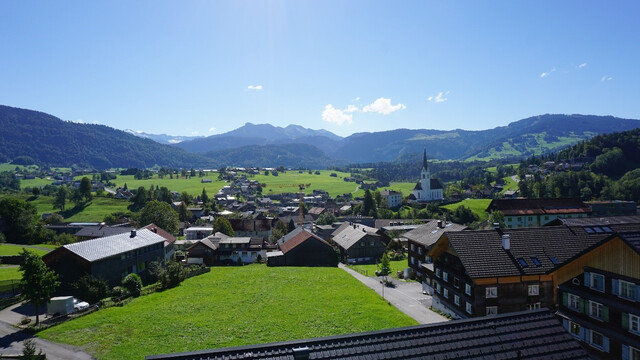Mysterious Farmers' Wisdom: What July Reveals About Winter
July, often the hottest month of the year, is considered in many farmer's rules as a kind of indicator for the upcoming weather. Whether summer or even the following winter – July is attributed with a special predictive power. Let's take a closer look at a few of these rules that you might have heard before.
If July drizzles...
A well-known farmer's rule says: "If July starts to drizzle, the next month (August) will be a wet man." Or there are variations that even concern autumn or the harvest. The idea behind this is that a wet start to July is often a sign of a stable weather pattern that can persist over a longer period. A rainy July could therefore indicate a wet summer or even autumn, which can be crucial for the harvest.
Hot July, cold winter?
Another widespread farmer's rule directly compares July to winter: "If July makes us hot, winter brings ice." This rule suggests that extreme heat in summer could lead to an especially cold winter. The reasoning for this is less directly apparent than with the rain rule, but the old farmers believed in this balance in nature.
The Seven Brothers Day: A Key Day in June
Strictly speaking, the Seven Brothers Day is on June 27, just before the beginning of July. But it is so closely linked to summer weather forecasting that it belongs here. The farmer's saying goes: "As the weather is on Seven Brothers Day, so it may remain for seven weeks." The legend tells of seven brothers who died on this day. The special thing: The weather on this one day is said to determine the character of the next seven weeks, thus a large part of the high summer. If June 27 is sunny, the summer is supposed to be sunny. If it rains, weeks of showers threaten.
What is the truth behind the old sayings?
Are these farmer's sayings reliable weather forecasts? Honestly: they are mostly not scientifically tenable. The weather is a complex system influenced by global factors. Individual days or months are rarely such clear harbingers of the weather in the distant future as the farmer's sayings promise. They are based on centuries of observation, which gives them a certain basis, but regional differences and long-term climate changes make them inaccurate tools for modern forecasting.
Conclusion: Charming Tradition Instead of Exact Forecast
Farmer's sayings are fascinating insights into the knowledge and way of life of earlier generations. They show how dependent people were on the weather and how closely they observed nature. They are charming sayings that give us a connection to history and can make us smile. However, for exact weather forecasts for your vacation or planning the next months, you should rely on modern, scientifically based forecasts. Nevertheless, it is fun to keep the old farmer's sayings in mind and see if nature perhaps adheres a little bit to the old wisdom.
This article has been automatically translated, read the original article here.
Du hast einen Hinweis für uns? Oder einen Insider-Tipp, was bei dir in der Gegend gerade passiert? Dann melde dich bei uns, damit wir darüber berichten können.
Wir gehen allen Hinweisen nach, die wir erhalten. Und damit wir schon einen Vorgeschmack und einen guten Überblick bekommen, freuen wir uns über Fotos, Videos oder Texte. Einfach das Formular unten ausfüllen und schon landet dein Tipp bei uns in der Redaktion.
Alternativ kannst du uns direkt über WhatsApp kontaktieren: Zum WhatsApp Chat
Herzlichen Dank für deine Zusendung.








